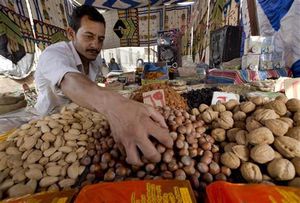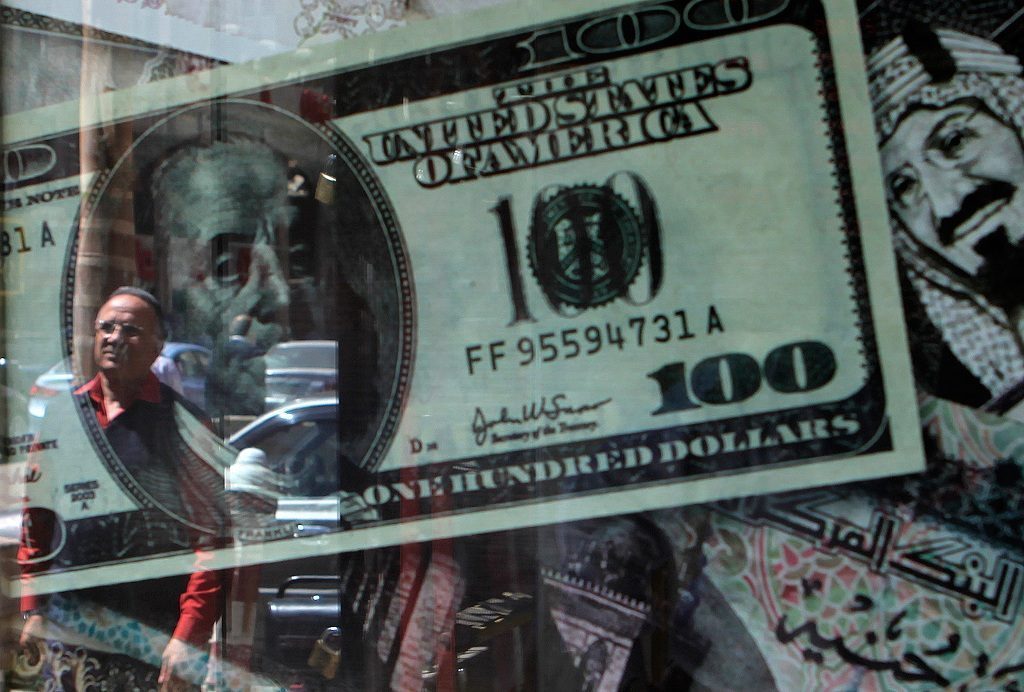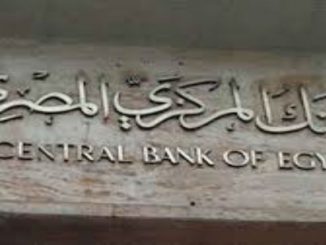Prices rose up dramatically in Egypt during the holy month of Ramadan which is painful for Egyptian families, as it is a tradition that families gather in Ramadan at sunset to break the day’s fast (about 16 hours) in a festive mode.
Shop owners pointed out that people no longer buy goods as much as they used to do in previous years. Hassan Mahmoud, a shop owner, piled up heaps of dried fruits and nuts at a multicolored Ramadan tent in the Egyptian capital to catch the shoppers’ eyes for the holiday like he usually does every year. Only this time, he said, “people aren’t buying.”
He added that goods are very expensive compared to past years. “Things get more expensive every year, but this time, it’s even worse because the dollar is higher,” Mahmoud said.
The annual inflation rate hit 12.23% in May – the highest level in seven years. The Egyptian economy is going through unprecedented hard times. Since al-Sisi reached power by a military coup in 2013, he promised to recover the Egyptian economy. But the al-Sisi economic policy has not succeeded in reviving the economy that has even witnessed more dramatic falls in recent time.
In a way to contain the high prices’ impact on the low-income families, the government has provided mobile markets, offering basic products at discount prices. Moreover, the state security bodies – the army, the ministry of interior and the general intelligence service, distributed basic goods to the poor in highly publicized events.
Meanwhile, al-Sisi and other officials have tried to deflect some blame about higher prices toward alleged manipulation by dishonest traders.
Economist Omar el-Shenety of the Cairo-based Investment Bank Multiples Group said, “Although giving out bags of basic goods is good and it helps, it cannot be a solution.” He added, “inflation has more “chronic” causes.”
Imports and essential basic goods prices like wheat are more than doubled as it must be bought in dollars. The dollar exchange rate has increased against the Egyptian pound.
The Central Bank of Egypt devalued the pound by over 14 % in March, setting the dollar at 8.85 pounds compared to 7.73 previously. On the black market, traders are paying up to 11 pounds per dollar.
In an attempt to shift demand inwards, the government has raised import duties on several products, especially those it labels as luxury goods – including nuts and fruits frequently sold in Ramadan markets. Moreover, the government has also restricted some imports, which increased the problem. El-Shenety said, “The resulting lack of goods raises prices even more.”
Price hikes are not restricted to goods, but the prices of electricity and water bills are also rising, as well as fuel which has become more expensive. Pharmacies are also running out of some medications, which is fueling anger on the social networking sites.For several times, al-Sisi has called on Egyptians to “be patient” and urged them to donate to a fund created in 2014 called “Long Live Egypt.” In addition, he has also defended his decision to cut off energy subsidies that year – a step long urged by the International Monetary Fund to lend Egypt the required loan- but none of his predecessors had dared to enact for fear of a backlash.
Another sector affected by the recent inflation was the Health Ministry decision last month to increase prices of some locally manufactured drugs by 20%, said Economist Mohamed Abu-Basha of EFG-Hermes. The reason behind increasing the drugs’ prices was that the local manufacturers had been harmfully affected by the high raw material costs since the vast majority is imported and priced in dollars, forcing some to shut down, leaving Egyptians with only imported alternatives that cost four to five times as much as the prices stated by the Health Ministry . Pharmacists say the drug shortages over the past two years have worsened with the pound devaluation.
In addition, the increase in prices is not expected to decrease in the coming period. On the contrary, it is expected that the Egyptians will face a new wave of price rises with the expected parliament’s approval of a value-added tax (VAT) later this year.
“Egypt’s lower classes are already facing a real problem, but the purchase powers of the country’s middle class are also being eroded,” el-Shenety added.




